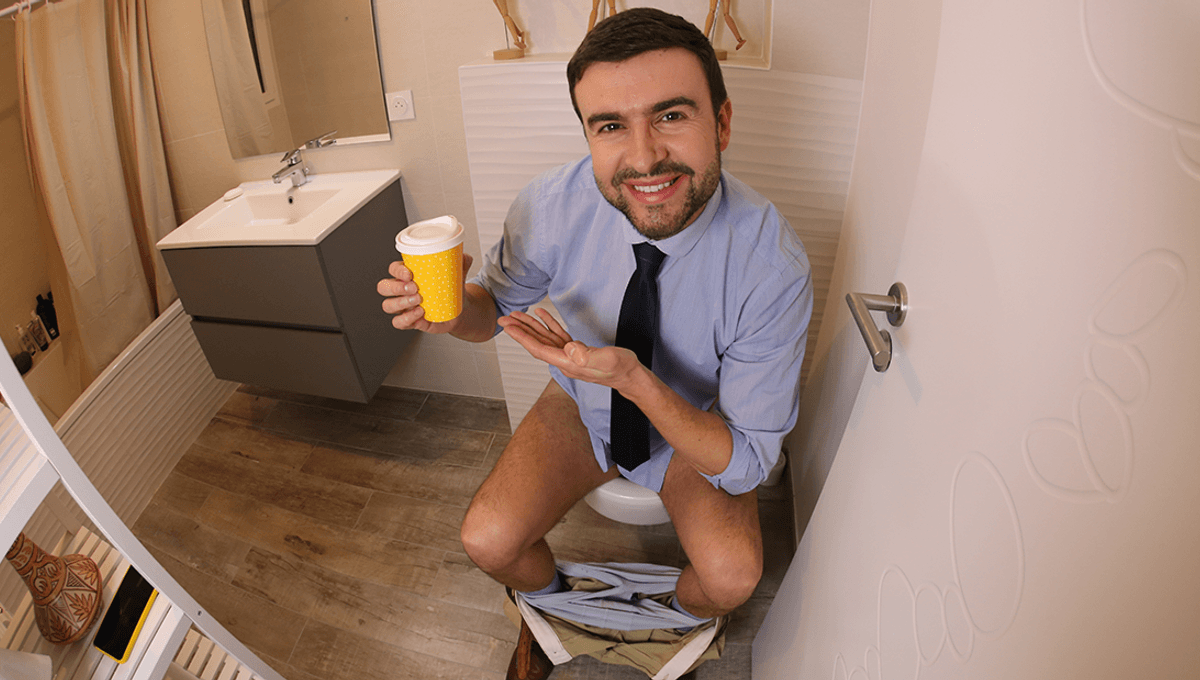
Coffee drinkers out there will be familiar with the phenomenon of coffee poops, the poops you suddenly have the urge for after drinking your morning macchiato.
The phenomenon is generally accepted amongst coffee drinkers, despite not a lot in the way of scientific investigation. In a small survey, 29 percent of people said that coffee gave them the desire to defecate. While interesting and/or annoying, finding out how many people need to poo shortly after a cappuccino isn’t (most) scientists’ number one priority.
Of course there has been a little research into the area and the mechanism behind it. First off, any liquid will help stimulate bowel movements by softening your stools. However, small studies have shown coffee gets the bowels working, including one that placed “a six-sensor solid-state probe up to the midtransverse colon” of 12 healthy volunteers.
“Caffeinated coffee, decaffeinated coffee and meal induced more activity in the colon with a greater area under the curve of pressure waves and a greater number of propagated contractions when compared with water,” the authors wrote in the study, which compared coffee, decaf coffee and meals with water. They concluded that “caffeinated coffee stimulates [colonic] motor activity. Its magnitude is similar to a meal, 60% stronger than water and 23% stronger than decaffeinated coffee.”
This suggests that caffeine may play a role in stimulating bowel movements, though there may be something else in the coffee given that decaf had an effect stronger than water. A later study, which monitored anorectal function after ingesting caffeine, provided further evidence it plays a role.
“Caffeine 3.5 mg/kg body weight in 200 ml of water resulted in stronger anal sphincter contractions both at basal period and during voluntary squeeze. The sensory threshold was also decreased, leading to an earlier desire to defecate,” the team wrote in their study. “Caffeine consumption may result in an earlier desire to defecate, leading to defecation if the anal sphincter can relax voluntarily.”
That isn’t the entire story, however, and part of it could be to do with coffee increasing the production of gastrin. One study found an increase of the hormone, which stimulates the bowels, after consumption of both regular and decaffeinated coffee.
“Drinking 100 ml of regular or decaffeinated coffee resulted in a prompt and lasting elevation of total gastrin; mean integrated outputs after regular or decaffeinated coffee were, respectively, 2.3 and 1.7 times the values in the control test. Regular and decaffeinated coffees share a strong gastrin-releasing property,” the team wrote in their study.
However, the exact mechanism of this remains a mystery.
“Neither distension, osmolarity, calcium, nor amino acid content of the coffee solution can account for this property, which should be ascribed to some other unidentified ingredient. This property is at least partially lost during the process of caffeine removal.”
In conclusion: Coffee makes some people need to poop and caffeine is a big part of that, but there’s also another ingredient in there – not wholly removed by the decaffeination process – which makes you need to go too.
All “explainer” articles are confirmed by fact checkers to be correct at time of publishing. Text, images, and links may be edited, removed, or added to at a later date to keep information current.
Source Link: Reader Question: Why Does Coffee Make You Poop?